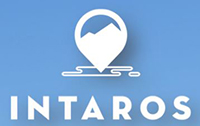Session at European Polar Science Week organised by Finn Danielsen, Peter Pulsifer and Martin Enghoff.
The whole session is available on Youtube: https://youtu.be/ljUTNlw4slM
Summary of discussion:
1 The new Central Arctic Ocean fisheries agreement: Cross-weaving is mandatory, but how?
2 Greenland community-led observing leads to many natural resource management proposals but needs policy initiatives and frameworks to enable cross-weaving
3 Expedition cruise operators visit areas nobody else goes to, eager to expand cooperation with scientists and citizen science
4 Substantial theoretical work made on the needs for cross-weaving. Multiple Evidence is one approach. Important to get further from theory to practice
The grand challenge: Mobilizing all relevant knowledge, observations and data on the Arctic environment will be transformational. It will bring better understanding that can transform natural and social science research and natural resource management in the Arctic. This has great potential to impact the lives of Arctic peoples.
Barriers
* Insufficient respect among scientists for the knowledge and observations of community members
* Incomplete understanding of how to obtain and use data from different people (with varying beliefs, epistemologies, rationalities and cosmologies) and different knowledge systems in mutually beneficial ways
* Lack of shared protocols enabling cross-weaving, and insufficient dialogue on how to ensure knowledge synthesis
* Lack of government policy in support of cross-weaving knowledge
* Asymmetric power relationships (and financial resources)
* Digital divide
Key research needs - and opportunities
* Develop a holistic data “ecosystem”: bridging conceptual, political and geographic distance
* Establish an understanding of how to obtain and use data from different people and different knowledge systems
* Develop ways to enable knowledge production and monitoring across scales
* Explore appropriate ways for combining Indigenous and Local Knowledge, Community Based Monitoring data, and science data for improved ”real-world” decision-making
* Improve coordination of research efforts (related to cross-weaving knowledge) and mobilize all research results for operational contexts
* Further develop observing-logistics and research infrastructures, including cyber infrastructure for cross-weaving knowledge
